Pillai or Pillay is a surname found among the Malayalam and Tamil-speaking people of India and Sri Lanka.

Satyendra Prasanna Sinha, 1st Baron Sinha, KCSI, PC, KC, was a prominent lawyer and statesman in British India. He was the first Governor of Bihar and Orissa, first Indian Advocate-General of Bengal, first Indian to become a member of the Viceroy's executive Council and the first Indian to become a member of the British ministry. He is sometimes also referred as Satyendra Prasanno Sinha or Satyendra Prasad Sinha.

Raja Shri Pattom A. Thanu Pillai was a participant in the Indian independence movement who later served as the Chief Minister of Kerala from 22 February 1960 to 25 September 1962. He was known as the 'Bhishmacharya' of Kerala politics.

Kerala Congress was a regional political party formed from the central Kerala units of the Indian National Congress. It was formed by a group of pro-P. T. Chacko legislators led by K. M. George in 1964. The party had gone through many splits and mergers.
Govindan Parameswaran Pillai, of Pallichal (1864–1903), commonly known as Barrister G. P. Pillai, was born in Pallippuram, Thiruvananthapuram, India, in an aristocratic Nair family. He was born on February 2,1864. His parents were Hariharan Iyer and Karthyayani Amma
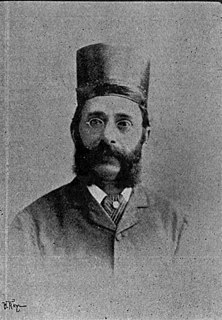
Sir Pherozeshah Merwanjee Mehta was an Indian Parsi politician and lawyer from Bombay. He was knighted by the British Government in India for his service to the law. He became the Municipal commissioner of Bombay Municipality in 1873 and its President four times – 1884, 1885, 1905 and 1911. Mehta was one of the founding member and President of the Indian National Congress in 1890.
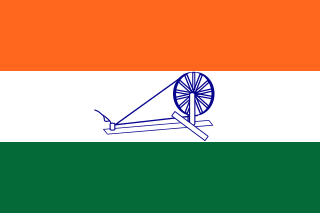
From its foundation on 28 December 1885 by A.O. Hume, a retired British officer, until the time India gained its independence on 15 August 1947, the Indian National Congress was considered to be the largest and most prominent Indian public organization, as well as the central and defining influence of the long Indian Independence Movement.

P. Krishna Pillai was a communist revolutionary from Kerala, India. He was one of the founding leaders of the Communist movement in Kerala, and a poet.
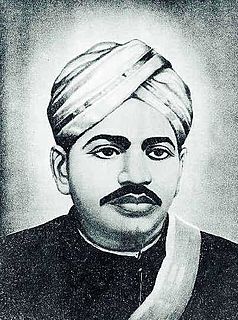
Vallinayagan Ulaganathan Chidambaram , popularly known by his initials, V.O.C., also known as Kappalottiya Tamizhan "The Tamil Helmsman", was an Indian freedom fighter and leader of Indian National Congress. Founder of Swadeshi Steam Navigation Company in 1906 to compete against the monopoly of the British India Steam Navigation Company (BISNC). He launched the first indigenous Indian shipping service between Tuticorin and Colombo with the Swadeshi Steam Navigation Company, competing against British ships. Tuticorin Port Trust, one of India's thirteen major ports, is named after him. At one time a member of the Indian National Congress, he was later charged with sedition by the British government and sentenced to life imprisonment, and his barrister license was revoked.

Womesh Chunder Bonnerjee was an Indian barrister. He was the co-founder and first president of Indian National Congress.
Lalmohan Ghosh was the sixteenth President of the Indian National Congress and eminent Bengali barrister and also Co-Founder of Indian National Congress.
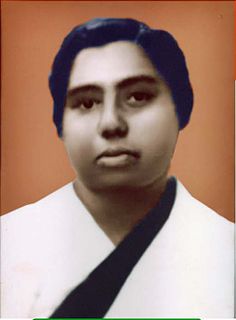
Accamma Cherian was an Indian independence activist from the erstwhile Travancore (Kerala), India. She was popularly known as the Jhansi Rani of Travancore.
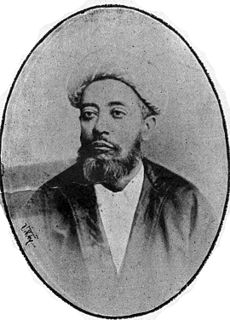
Rahimtulla Mahomed Sayani, was an Indian politician who served as the President of the Indian National Congress for a term in 1896, succeeding Surendranath Banerjea.

Chakravarti Vijayaraghavachariar was an Indian politician. He rose to prominence following his appeal against the charges alleging him to have instigated a Hindu – Muslim riot in Salem. The legal battle and eventual victory in proving his innocence earned him the title The Lion of South India.
Kainikkara Padmanabha Pillai (1898–1976), popularly identified as Swathithirunal Kainikkara Padmanabha Pillai after his magnum opus, Swathithirunal, was an Indian author of Malayalam literature, actor, speaker, teacher and thinker. He was known for his plays which dealt with themes such as patriotism, sacrifice and justice and his characters showed heroism, showing influence of William Shakespeare. Kerala Sahitya Akademi awarded him their annual award for drama in 1970. He was also a recipient of the Kalyani Krishna Menon Puraskaram.
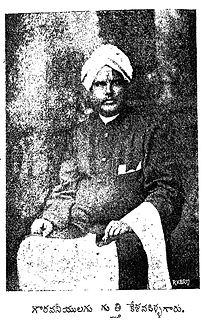
Diwan Bahadur Pattu Kesava Pillai was an Indian journalist, politician and activist of the Indian Independence movement.
Palavai Rangaiah Naidu (1828–1902) was an Indian lawyer, politician and Indian independence activist. He was an important leader of the Indian National Congress in its early stages.

Puli Thevan was a Tamil Polygar who ruled Nerkattumseval, situated in the Sankarankoil taluk, Tirunelveli, Tamil Nadu. He is notable for fighting against the imperial British rule in India.

K. Kumar (1894-1973) was an orator, reformer and writer of the Indian pre-independence era. He was one of the earliest socio-political leaders to have brought Gandhi's message and the spirit of the national movement to the erstwhile Travancore State. A gifted translator, he traveled with Gandhi during his Kerala tours, interpreting his English speeches in Malayalam. He was also an Advisor to the Nehru government. Kumarji was the President of the Travancore Congress Committee and was also in charge of Gandhiji's Travancore tour more than once. He served on the AICC and on the working committee of the AICC, TC-PCC/ KPCC heading its Constructive Work Committee during crucial years of the freedom movement.(Also known as: Travancore Kumar, Elanthur Kumarji; Kumarji, Elanthur Gandhi and Kuzhikala Kumar)
The Sheriff of Madras was an apolitical titular position of authority bestowed for one year on a prominent citizen of Madras. The post was abolished in 1998.